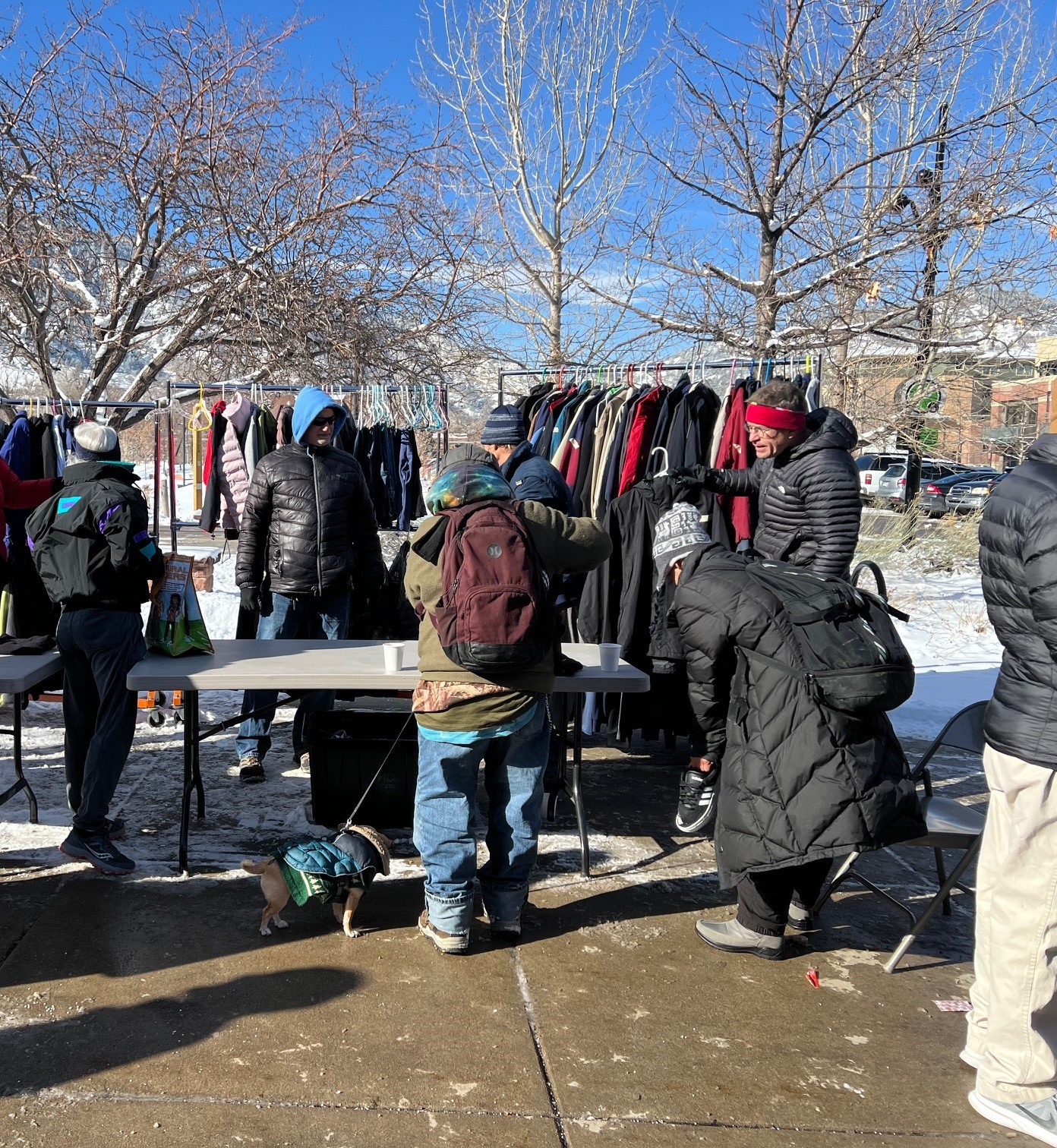
Location, location, location. This epithet fits in a swath of meditations beyond the estimated value of real estate.
In similar fashion, it also describes the mission of Boulder Community Court. Among the city’s unhoused population, there is a percentage that find themselves facing low-level criminal charges. Offenses range from illegal camping to trespassing and drinking and smoking weed in public.
For many participants, the thought of being ordered to appear in a brick-and-mortar courtroom can churn waves of anxiety. Matters only get more complicated upon learning that personal belongings and dogs — often their most loyal companions — are not permitted in the building.
Rather than subjecting these participants to what they perceive as a hostile atmosphere, Community Court meets people where they are. It convenes every Thursday morning, rain or shine, on the backside of the Penfield Tate Municipal building at Canyon and Broadway.
There, along the cascading water of nearby Boulder Creek, esteemed Municipal Court Judge Jeff Cahn hears cases via Zoom. You didn’t have to score straight As in criminal procedure to sense the wisdom and affinity oozing from the screen. Could this be a snapshot of a hoped-for American criminal justice system? Or did I die in prison and wake up in Norway, where the emphasis is on the inherent dignity of each soul, the overarching need for rehabilitation, not punishment?
“We take the court to them rather than take them to the Boulder Municipal Building,” said De’Von Kissick Kelly, the court administrator. While other cities like Austin and Spokane feature similar alternatives, “we’re the only one I’m aware of that is mobile and outside.”
Boulder Community Court’s enterprising roots go back to 2020. A $400,000 grant from the Justice Department’s Bureau of Justice Assistance opened the door for the court to gather the basic tools that shaped a more grassroots, benevolent approach.
“When an individual becomes housed,” explained Kissick Kelly, “the number of citations that individual receives falls dramatically, a direct reflection of that individual’s improved stability.”
Walking across the grounds over several visits, I was impressed at how smoothly the operation flowed. One man I met was busy browsing through the racks of gently worn clothing, collected by faith-based Deacons’ Closet. If he stays “out of trouble,” he said, “the charges will be dismissed.” Staying clean will also improve his chances of regaining custody of his daughter, who lives with her aunt in Longmont.
As the overnight frost melted from the tangle of pathways, I spoke with Chris Reynolds, the court’s supervisory city attorney. Reynolds, tall and athletic, belies the TV version of a legal eagle who pads the buffed halls with a sober gaze and briefcase stuffed with relevant documents. Flashing the boyish exuberance of a camp counselor I once knew, Reynolds, 40, strikes a calm and relaxed pose. His ease, much to my delight, was as contagious as the common cold.
“I believe people aren’t just defendants,” he said, as participants huddle with support staff to review the next steps involved in securing housing and jobs beyond serving as day laborers. “People are people. We have an adversarial criminal justice system. We’ve got a lot of work to do to change the system. I feel we can do our part and lead by example.”
After regaining the Oval Office, President Trump didn’t waste time in signing a flurry of executive orders and crafting bills that pledge other reforms. On the campaign trail, he said the homeless cannot continue to block parks and sidewalks. He proposes a nationwide ban on urban camping, while directing people to programs that treat drug addiction and mental health.
Homeless advocates claim that’s not the answer. The threat of ordering treatment and arrests only complicates the issue of finding apartments and jobs.
However the issue plays out over the next four years, I will always remember the gracious and good-hearted people of Boulder’s Community Court. They provide a penetrable fortress against many of society’s ills and some much-needed social nourishment for a time such as this.
If the allegorical Lady Justice would pull off her blindfold long enough to see the acts of loving forbearance showcased within this branch of government, I bet she would begin wildly clapping her scales together.
Tony Glaros, originally from Washington, DC, is a longtime reporter and teacher. He writes a weekly column for the Times-Call in Longmont.
